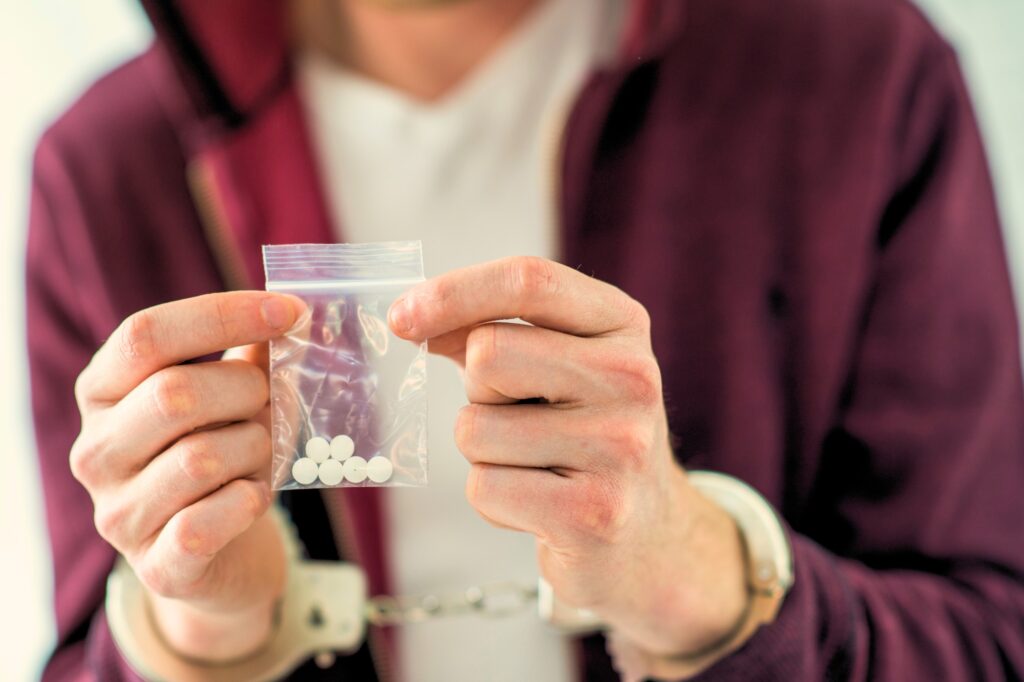Temporary Possession of Drugs, Florida Drug Laws
Elements of Drug Possession:
In order to find that a Defendant is in possession of a drug, the State must show that the Defendant either (a) had actual possession of the drug, or (b) had constructive possession of the drug. Temporary possession does not satisfy either of those types of possession.
Temporary Possession is insufficient possession under Florida law:
“To prove dominion and control the evidence must establish the Defendant’s conscious and substantial possession, as distinguished from mere involuntary or superficial possession of the contraband.” In other words, the State must present more evidence than temporary possession under Florida Law in order to sustain a verdict on possession of contraband. Different Courts have elaborated on what is meant by temporary possession, but the general premise is that in order to actually possess the drug, under the letter of the law, there must be a substantial possession. In other words, an actual intent to possess the drugs, unknowing and accidental possession don’t count.
Therefore, Temporary Possession of Drugs is a Defense:
The Defense is used to show that there was not sufficient possession as required by law. Without evidence of actual or constructive possession, the State cannot meet its burden and the case should be dismissed. Therefore, where applicable the Defense Attorney would introduce evidence to establish that the possession was mere temporary possession and did not rise to the level required to satisfy possession. If the Defense Attorney is successful, and the State cannot introduce evidence to show a substantial possession, then the Trial Court should dismiss under a temporary possession defense.
Circumstantial Evidence in Temporary Possession Cases:
Where the evidence is circumstantial, the State is required to prove that the evidence is inconsistent with any reasonable hypothesis of innocence. Where there is a single reasonable hypothesis of innocence that remains, the State has failed to meet its burden. This is specifically implicated in temporary possession cases, because of the often circumstantial evidence that surrounds temporary possession cases.
Case Analysis of Temporary Possession of Drugs:
Take a look at Isaac v. State, 730 So.2d 757 (Fla. 2nd DCA 1999). In Isaac, officers observed two men standing a foot apart, passing an unknown object back and forth. The men saw the officer and immediately dropped the bag to the ground. The bag was recovered and the drugs were inside. The 2nd District Court in Isaac stated that this type of possession did not fall under either Actual or Constructive Possession and therefore the case should have been dismissed. The Court cited constructive possession and temporary possession theories, stating “The State did not meet its burden of excluding every reasonable hypothesis of innocence. To be sure, the circumstances suggested that one or both men possessed the cocaine. At the same time, however, those circumstances did not exclude the reasonable hypotheses that the men found the baggie at that spot and were simply examining it when the policemen happened by, or that the other fellow brought the cocaine there and was showing it to Isaac.” The Court reversed the conviction and ordered the Circuit Court to discharge the case.
If you or your loved one are in need of information on temporary possession of drugs, call us at 407-930-8912 to speak with a qualified legal professional or fill out the contact form on this page. We’re available 24/7, we offer free initial consultation and payment plans. In addition to our Orlando location, we have offices in the following cities across the state of Florida:
- Daytona Beach
- Kissimmee
- Melbourne
- Lakeland
- Ocala
- Tampa
- Fort Myers
- Sanford
- Miami
- Jacksonville
- Fort Lauderdale
- Sarasota
- Clearwater
*Additional Orlando Florida & Orange County Legal Resources
